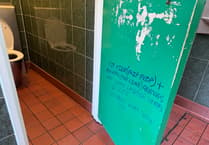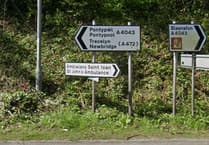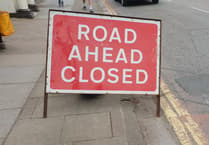A COUNCIL which said it reduced the size of school buses to tackle climate change has now admitted the decision was made to save money.
David Davies MP hit out at Monmouthshire County Council for sparking “confusion” after he was originally told smaller buses were being used for school transport under its “climate emergency policy”.
The Monmouth MP said sixth form pupils – who are not automatically entitled to free-home-to-school transport – would instead be forced into cars to “save the planet”.
But council leader Mary Ann Brocklesby has come back and confirmed the Labour-administration is removing seats for post-16 learners to relieve a “financial burden”.
Mr Davies said chaos was reigning in County Hall over “which excuse to use” and accused the council of claiming to be environmentally friendly to disguise cost cutting.
“I suspected all along that this was about money, but why are they writing and telling me different things?” he said.
“On one hand, Labour-cabinet member for education Martyn Groucutt said the council has a duty to work towards achieving zero-carbon under its climate emergency policy and “great efforts” have been made to ensure that buses used for school transport are the smallest ones possible.
“I pointed out the idiocy of this as reducing school bus places and making children travel to school by car instead to save the planet flies in the face of environmental concern.
“Now Labour leader Mary Ann Brocklesby claims it’s nothing to do with climate change but is actually due to the council acting in a “prudent financial manner”.
“So who is right? Answers on a postcard please.”
Post-16 learners are not entitled to free-home-to-school transport, although the council does offer spare seats on a discretionary and heavily subsidised first come, first served basis. But with smaller buses operating on school routes across the county, many sixth formers have been told there is no room – forcing angry parents to drive them instead.
Mr Davies said the problem was particularly acute for Monmouthshire pupils travelling to Caerleon Comprehensive School, where buses had been reduced from three to two and only two concessionary seats were available for sixth formers.
He said: “I have been contacted by one sixth form student who goes to Caerleon as it is the closest school to where he lives. However, he does not live anywhere near a public transport route and can’t get on the school bus, so is reliant on his parents driving him - which is difficult as they work full-time on long hours.
“There are days when he doesn’t know how he is getting to and from school. The point he is making, which I fully support, is that this not only makes sixth form education inaccessible to children who live in a rural community but is resulting in increased carbon emissions due to more car journeys. I am told there at least 10 other children who have been affected and now have to be driven to school by their parents.”
In a letter to Mr Davies, Councillor Brocklesby said there had been 12 unsuccessful applications for post-16 transport to Caerleon Comprehensive and Crickhowell High School – a “financial burden” that would save the council around £26,000 for the current financial year.
“It would be nice if the Labour-run council could figure out what their excuse is,” added Mr Davies.
“Or better still, come together and agree that the council has never had to operate smaller buses on school routes before. The focus should be on working to achieve a better policy for discretionary transport that helps more sixth form pupils and their families.”





Comments
This article has no comments yet. Be the first to leave a comment.